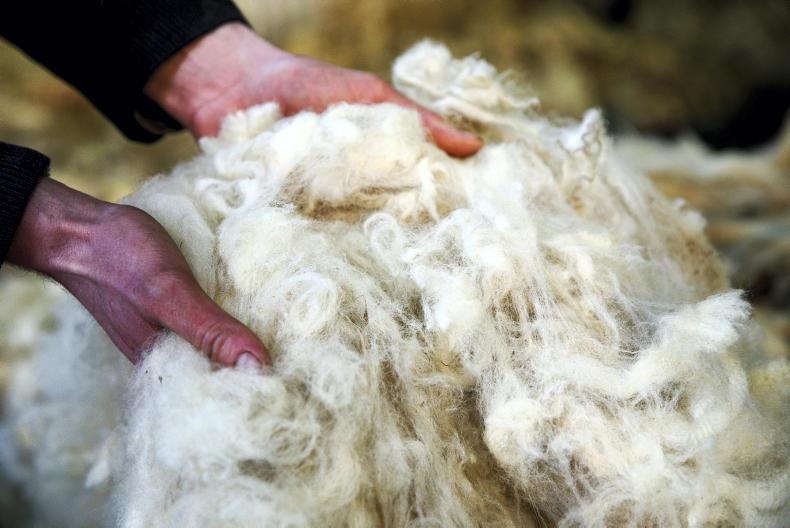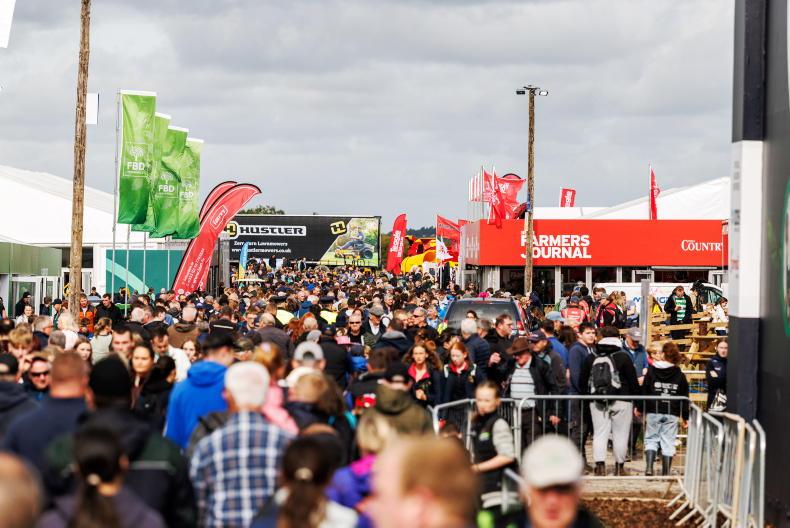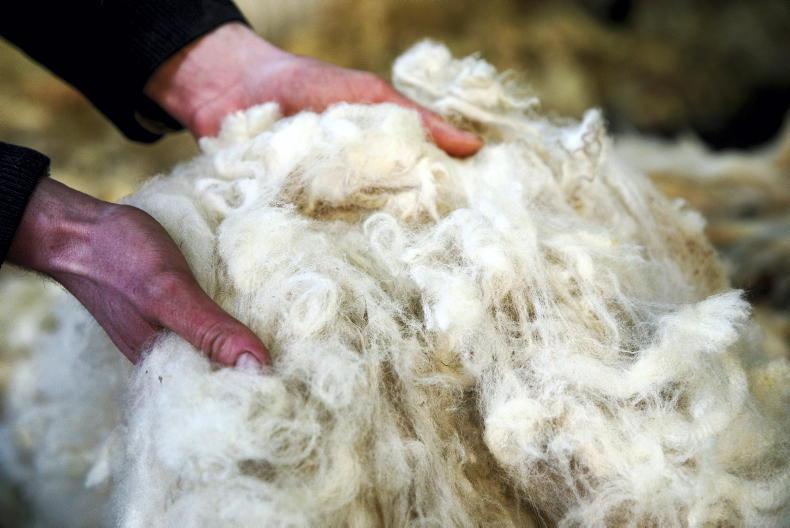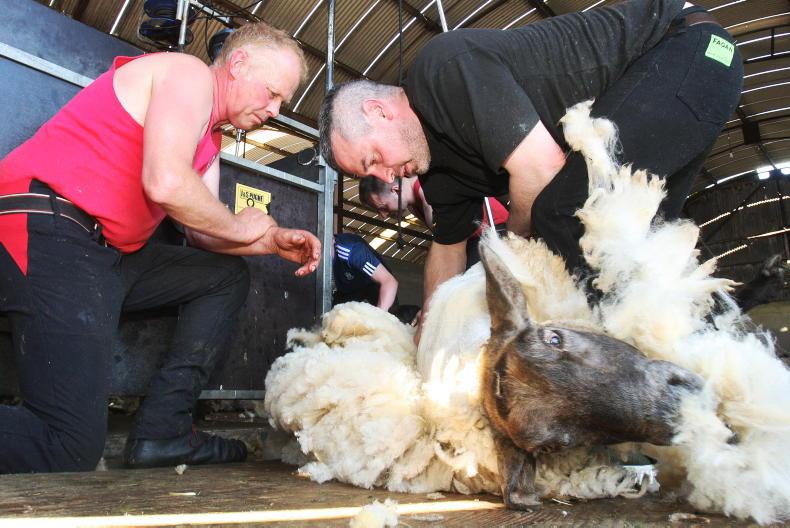Ulster Wool will not be issuing advanced payments to NI sheep farmers for the 2021 clip across any grades of wool.
Instead, full payments will be issued next year after the 2021 clip has been sold through British Wool’s auctions in Bradford.
Its newly appointed chief executive, Andrew Hogley, appears optimistic about this season’s auctions and maintains wool markets are recovering after the coronavirus lockdowns.
“Ulster Wool is very confident that we will be able to return much more value to our producers by this time next year. We pay out the average price over the season so why take a price now when markets are only starting to recover?” he said.
Ulster Wool has confirmed no balance payments for the 2020 clip will be issued this year across fine and medium wool grades
NI sheep farmers who supply Ulster Wool traditionally received an advanced payment in the current year and then balance payments were issued 12 months later after the wool had been sold.
Ulster Wool has confirmed no balance payments for the 2020 clip will be issued this year across fine and medium wool grades. These wools come from the likes of Suffolk and Texel sheep and were eligible for an advanced payment for the 2020 clip last year.
It means farmers who only supply these types of wool will not receive any payments this year.
However, wool from Mule and Blackface sheep did not receive an advanced payment for the 2020 clip last year and so a full payment will be issued to suppliers this year. Prices for Mule wool are around 15p/kg and Blackface prices range from 5p/kg to 12p/kg.
We have 25 collection centres across NI and not many people are more than 25 minutes’ drive from one of our centres
Hogley confirmed that transport charges have been “permanently abolished”. These were traditionally deducted from wool cheques to cover costs associated with moving wool from local collection centres to the Ulster Wool depot in Muckamore.
“We have 25 collection centres across NI and not many people are more than 25 minutes’ drive from one of our centres. We used to deduct £5.15 per sheet but that charge has been eliminated,” he said.
Wool boss confident of higher prices
An upbeat outlook for wool markets and producer prices was given by Ulster Wool chief executive Andrew Hogley during an interview with the Irish Farmers Journal.
He said there were three key end markets for local wool and the signals appear positive for each of them for the next 12 months.
Hogley gave the example of contract carpets, which are used in the likes of pubs, hotels and casinos.
“We are starting to see a recovery in the hospitality sector and that’s what we really need to drive demand,” he said.
The second key market is transport fabrics, where there has been little investment in planes, buses and trains over the past year.
The third outlet is carpet retail and this sector covers carpets that the general public buy for their own homes.
The average auction price at the most recent British Wool sale was 67p/kg, compared to 50p/kg this time last year
“With retailers being closed [due to lockdowns], this market has been quiet. When carpet shops have been opened though, it has been looking very strong,” Hogley said.
He pointed out that many people have been able to save money during the COVID-19 pandemic and there is a strong interest in home improvements when non-essential retail outlets are open.
Hogley maintained that prospects for the wool market are very different to 12 months ago. The average auction price at the most recent British Wool sale was 67p/kg, compared to 50p/kg this time last year.
Back then, around one third of the previous year’s clip was unsold and had to be carried over into the following season’s auctions.
This puts us in a much stronger position
This has now been cleared and there is no stockpile of leftover wool going into the new season.
“We have managed to sell more wool in the last 12 months than we have in any one-year period for the last decade.
“This puts us in a much stronger position and, over the last two months, auction prices have started to recover,” Hogley said.
Support package
The Ulster Wool chief also pointed out how the organisation helped local producers over the coronavirus pandemic.
This includes working with the UFU to successfully lobby DAERA for a £1.27m COVID-19 support package for NI sheep farmers.
He added that Ulster Wool has also been using marketing campaigns to promote local wool to consumers and it has continued to run training courses for shearers and wool handlers.
“Over the last year, we accepted all types of wool, whatever the quality and type. If you look to the Republic of Ireland or across Europe, there was a huge amount of wool that wasn’t collected and farmers had to dump it,” Hogley said.
“Even in a challenging year where the end markets were effectively closed, we still accepted wool and worked to return value to sheep farmers,” he concluded.









SHARING OPTIONS